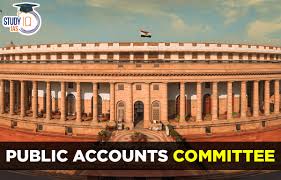Public accounts: On the newly constituted Public Accounts Committee
The PAC must assert its role as an instrument of parliamentary oversight
Over the last decade, the Central government, with a comfortable majority in Parliament, has evaded meaningful parliamentary accountability. Now, however, the BJP heads a coalition that is dependent on allies, and the Opposition is stronger. The changed situation is an opportunity for the renewal of parliamentary oversight over the executive’s functioning. The proactive beginning of the newly constituted Public Accounts Committee (PAC) is a case in point. On September 2, it notified 161 subjects it had picked for deliberations during its term, most of them based on CAG reports. The panel has picked five subjects suo motu — reforms in the banking and insurance sectors; review of the implementation of centrally sponsored welfare schemes; policy measures underway for transition in the energy sector; performance review of regulatory bodies established by Acts of Parliament, and the levy and regulation of fees, tariffs, user charges, on public infrastructure and other public utilities. The PAC, headed by Congress Member of Parliament K.C. Venugopal, has made use of the rule which clearly states that its functions can go “beyond the formality of expenditure to its wisdom, faithfulness, and economy”. This rule has been used only rarely and to make a political point. Though the subjects picked by the PAC have political undertones, the overarching public interest involved is unmistakable.
The constitutional scheme envisages that Parliament controls the finances of the country. Any tax may be imposed only by passing legislation. All expenditure of the government needs prior sanction from Parliament through Appropriation Bills. The CAG is a constitutional office that examines and audits the financial functioning of all government departments. All its reports are sent to the PAC, one of the oldest and most significant parliamentary panels. Government measures that pick the winners of the economy have led to serious allegations of crony capitalism in recent years. The government has refused to investigate the serious charges against SEBI Chairperson Madhabi P. Buch and the Adani Group, which controls seven Indian airports. Public sector banks and regulatory bodies have a lot to answer for. The BJP has already opposed any PAC investigation into these questions. The 22-member PAC has 13 members from the BJP-led NDA and nine Opposition MPs, including four from the Congress. The committee’s assertive posturing could be undermined by the ruling coalition’s majority. The PAC, and the Department Related Standing Committees, many of which are yet to be constituted, should assert their role as instruments of parliamentary authority and the enforcer of the executive’s accountability to the people.
